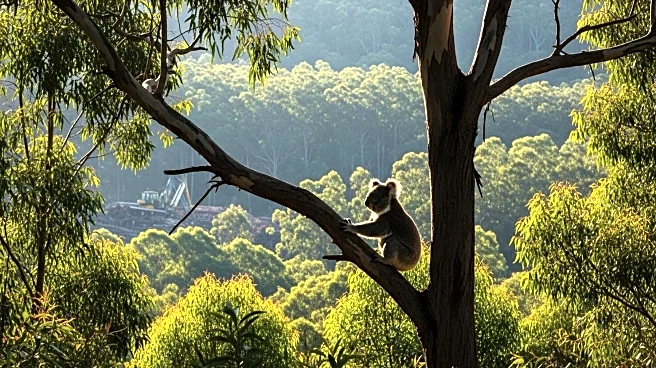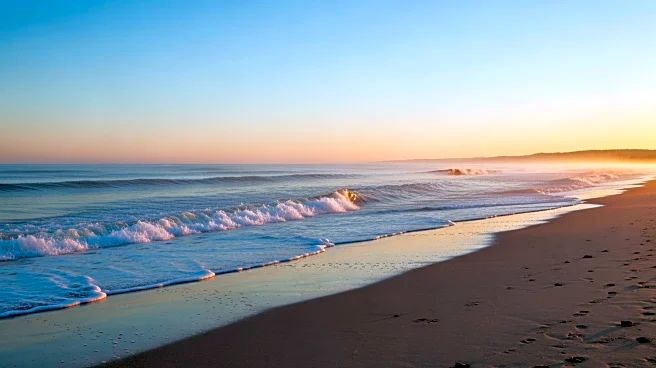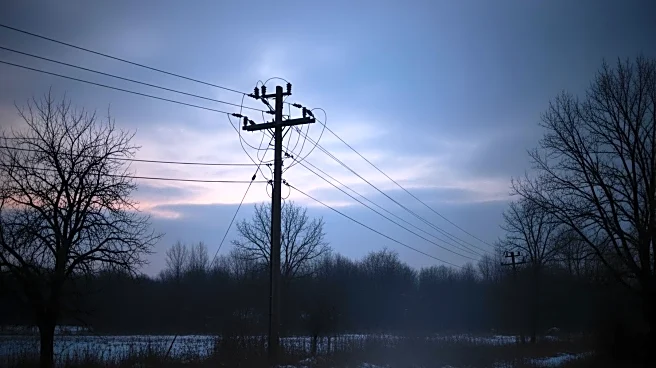What's Happening?
The New South Wales (NSW) government has announced the creation of the Great Koala National Park, a significant conservation effort aimed at protecting koalas and other endangered species. The park will encompass 176,000 hectares of state forest, connecting existing national parks to form a reserve twice the size of the Blue Mountains national park. This initiative, which fulfills an election promise, aims to safeguard over 12,000 koalas, 36,000 greater gliders, and more than 100 other threatened species. The park is expected to boost regional tourism and will be partially funded through carbon credits, a proposal currently under federal government assessment. However, the timber industry has expressed strong opposition, citing disregard for the livelihoods of workers affected by the park's establishment. Timber NSW and other industry representatives have criticized the government's decision, arguing for smaller park alternatives that would mitigate economic impacts.
Why It's Important?
The establishment of the Great Koala National Park represents a significant shift in land use policy, prioritizing environmental conservation over timber industry interests. This decision underscores the growing emphasis on biodiversity protection and sustainable tourism as economic drivers. While the park promises ecological benefits and potential tourism revenue, it poses challenges for the timber industry, which faces operational disruptions and job losses. The government's support package for affected workers, modeled on pandemic-era JobKeeper payments, highlights the socio-economic tensions between conservation efforts and industry needs. The park's creation could set a precedent for similar initiatives, influencing future policy decisions regarding land use and environmental protection.
What's Next?
The NSW government will continue to assess the carbon credits proposal to fund the park, with potential implications for federal environmental policy. Industry stakeholders, including Timber NSW, are expected to engage with unions to address the economic impact on workers. The government may face ongoing criticism and pressure to adjust its support measures for affected communities. As the park develops, monitoring its impact on regional tourism and biodiversity will be crucial. The success of this initiative could influence other states to adopt similar conservation strategies, potentially reshaping Australia's approach to environmental management.
Beyond the Headlines
The creation of the Great Koala National Park raises broader ethical questions about balancing economic development with environmental conservation. It highlights the need for comprehensive strategies that address both ecological preservation and community livelihoods. The park's establishment may also contribute to long-term shifts in public perception, fostering greater appreciation for biodiversity and sustainable tourism. Additionally, the reliance on carbon credits as a funding mechanism reflects the increasing integration of environmental considerations into economic planning, potentially influencing future policy frameworks.











